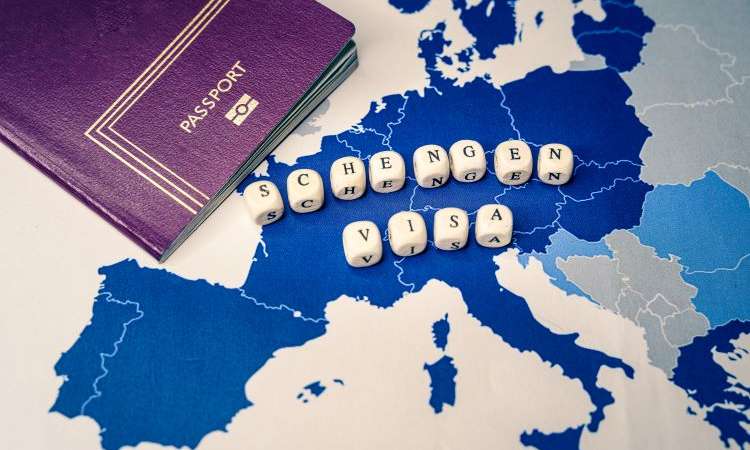Understanding Schengen Visa Fees: Tips and Insights for Indian Applicants
Understanding Schengen Visa Fees: Tips and Insights for Indian Applicants

Indian passport holders wishing to experience the architecture of beautiful cities, stunning sceneries, and diverse cultures of Europe must obtain a Schengen visa before their physical journey. The Schengen allows tourists to enjoy visiting 26 European countries, which makes travel within the Schengen Area easy. Nevertheless, the process of filling in the documents for a Schengen visa, especially due to the issue of associated fees, is not always easy to understand. In this comprehensive overview, we will uncover the complexity of Schengen visa fees for Indians that will facilitate navigation throughout the application process.
Understanding Schengen Visa
Before exploring the Schengen visa, it is crucial to know what the Schengen visa is. The Schengen visa is a short-stay visa granted to travellers so that they can travel to any of the 26 countries participating in the Schengen Agreement for tourism, business, or family purposes. The list of these countries includes all the most visited countries, such as France, Italy, Spain, Germany, and the Netherlands, among others. Armed with a Schengen visa, travellers can move freely within the Schengen Area for a period not more than 90 days within 180 days.
Schengen Visa Fees for Indians
The Schengen visa application process is characterised by certain fees that differ from one applicant to another based on parameters such as nationality, age, type of visa, and duration of the stay. undefined
• Visa Application Fee:
The cost of the regular Schengen visa for adults is set at EUR 80 (older than 12 years). However, certain categories of applicants, such as children (ages 6 to 12) and some visa categories, are eligible for reduced or free fees.
• Visa Processing Fee:
For the initial visa application fee, the applicant might be also asked to pay the processing fee to the visa application centre or embassy/consulate where they send their papers. The cost of this processing covers the administrative fees of the visa application process.
• Biometric Data Fee:
Besides biometric data, applicants will also be required to provide their fingerprints as well as photographs during the visa application process. You also need to know that visa applications may have a separate biometric data fee, ranging from EUR 5 to EUR 15 and depending on the visa application centre.
• Optional Services:
Visa applicants may be keen on other services the Visa Application Centres offer, such as premium processing, courier services, or guidance in filling out the forms. They are usually paid as a supplemental fee.
• Travel Insurance for Schengen Visa:
But not a visa fee as such, the applicants should provide travel insurance to cover their medical costs, emergency medical evacuation as well as repatriation for the promised time of their stay in the Schengen Area. The price of travel insurance depends on the sum insured, the length of the trip, and the insurance company.
Types of Schengen Visas
Schengen visas are separated into different categories, which one is depending on the reason as well as the duration of the proposed visit. The main types of Schengen visas include:
• Schengen Uniform Visa (Type C):
The duration of the visa permits short-term visits in the Schengen Area, including leisure, business meetings, conferences, or a family member or a friend, for example.
• Schengen Airport Transit Visa (Type A):
This visa is solely required for visitors who stay in the Schengen area International Airport, which is the area where passengers won't get to the Schengen territory.
• Schengen Limited Territorial Visa (Type LTV):
Such a visa permits visitors to cross borders in the Schengen Area and spend their holiday in several Schengen States, but not in certain countries, territories, or regions.
Schengen Visa How to Apply?
To apply for a Schengen visa, Indians need to follow these steps:
• Decide whether a tourist, business, or family visit visa is required for the type of visit (tourism, business, or family visit).
• Fill out the visa form online or get a paper copy on the consulate/embassy website.
• Assemble your necessary documents including your passport, passport-sized photos, travel itinerary, accommodation booking, travel insurance, financial ability, and visa fees.
• Book an appointment at the interested consulate or visa application office.
• Visit the respective office, submit the application with your biometric data (if needed), and pay the visa fee.
• Application processing will last for about a few weeks.
• Collect the passport and visa (if approved) or receive information on the result.
• Make sure you follow all the rules carefully without any mistakes.
Conclusion
Finally, having Schengen visa charges explained to Indians who are planning European journeys is very important. Next to the application and processing fees, buying an insurance pass, which might cover the unanticipated medical costs, is important before you embark on the trip. With our extensive guide, travellers are enabled to complete the process of applying for visas, thus assuring problem-free travel through the Schengen Area while prioritising their health as well as their well-being when travelling internationally by making use of travel insurance.
Disclaimer: The above information is for illustrative purposes only. For more details, please refer to the policy wordings and prospectus before concluding the sales.










 Health Insurance
Health Insurance  Travel Insurance
Travel Insurance  Car Insurance
Car Insurance  Cyber Insurance
Cyber Insurance  Critical Illness Insurance
Critical Illness Insurance
 Pet Insurance
Pet Insurance
 Bike/Two Wheeler Insurance
Bike/Two Wheeler Insurance  Home Insurance
Home Insurance  Third Party Vehicle Ins.
Third Party Vehicle Ins.  Tractor Insurance
Tractor Insurance  Goods Carrying Vehicle Ins.
Goods Carrying Vehicle Ins.  Passenger Carrying Vehicle Ins.
Passenger Carrying Vehicle Ins.  Compulsory Personal Accident Insurance
Compulsory Personal Accident Insurance  Travel Insurance
Travel Insurance  Rural
Rural 











